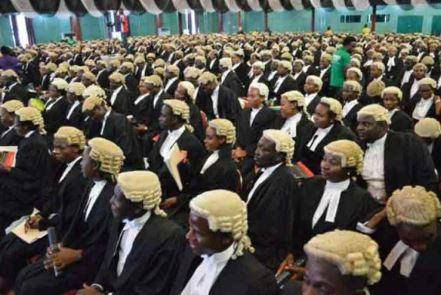The National Industrial Court of Nigeria (NICN) President Justice Benedict Kanyip yesterday said government lawyers lose court cases because of “incompetence”.
According to him, a majority of them are not only unprepared but also ignorant of new developments in the jurisprudence. He said this at the opening session of a training on proceedings of the NICN, organised for state counsel in the Ministry of Justice.
Justice Kanyip said: “Many cases have been lost by the government due to the incompetence of counsel.” He said the situation got to a point that an erstwhile Solicitor-General of the Federation confronted him to complain that the government was losing a lot of cases.
According to the jurist, while the Federal Government was lamenting its inability to win most industrial-related disputes, labour unions, on their part, accused the court of favouring the government.
He said many state lawyers approach the NICN with the wrong notion that it shares similar procedural guidelines and practice directions with the Federal High Court. Justice Kanyip said: “In such cases, there is nothing we can do.
As Judges, there are limits that we can go into the arena. “Recently, I did a case that involved Shell. Apart from the state counsel coming late to court, there was late filing of processes with the excuse being that he could not find the case file.
“I asked if counsel wanted to get the certified copies from the court and he said no, so, I dismissed the excuse. “Even though the case was won at the end of the day, it was not because of the effort of counsel, but because of the industry of the bench.”
Declaring the training open, the Attorney General of the Federation and Minister of Justice Lateef Fagbemi said the aim was to build capacity of lawyers in the Ministry of Justice “in the resolution of industrial disputes either through the litigation or mediation windows offered by the NICN”.
The AGF maintained that the NICN, being a specialized court with expertise in the increasingly complex field of labour law, employment matters and trade unions, plays a critical role in the protection and balancing of employer and employee rights, ensuring socio-industrial stability, and economic development of the country.
He said: “Let me also emphasize that this Hon. Court is also vital to the sustenance of government policies as exemplified by cases which have challenged or borders on the interpretation of the Public Service Rules, government circulars, tenure policy in the Federal Public Service.















